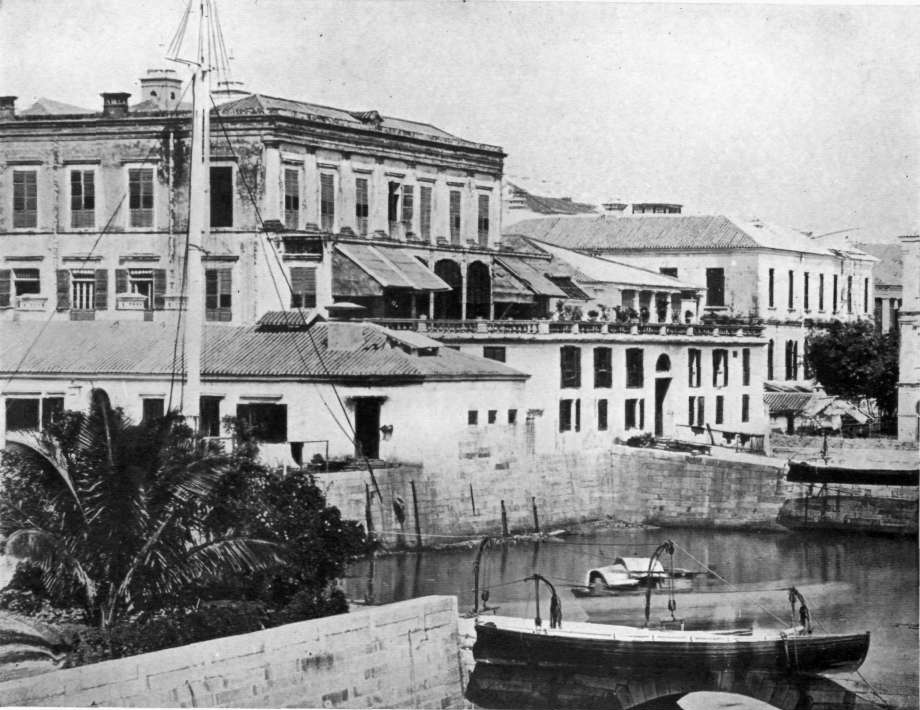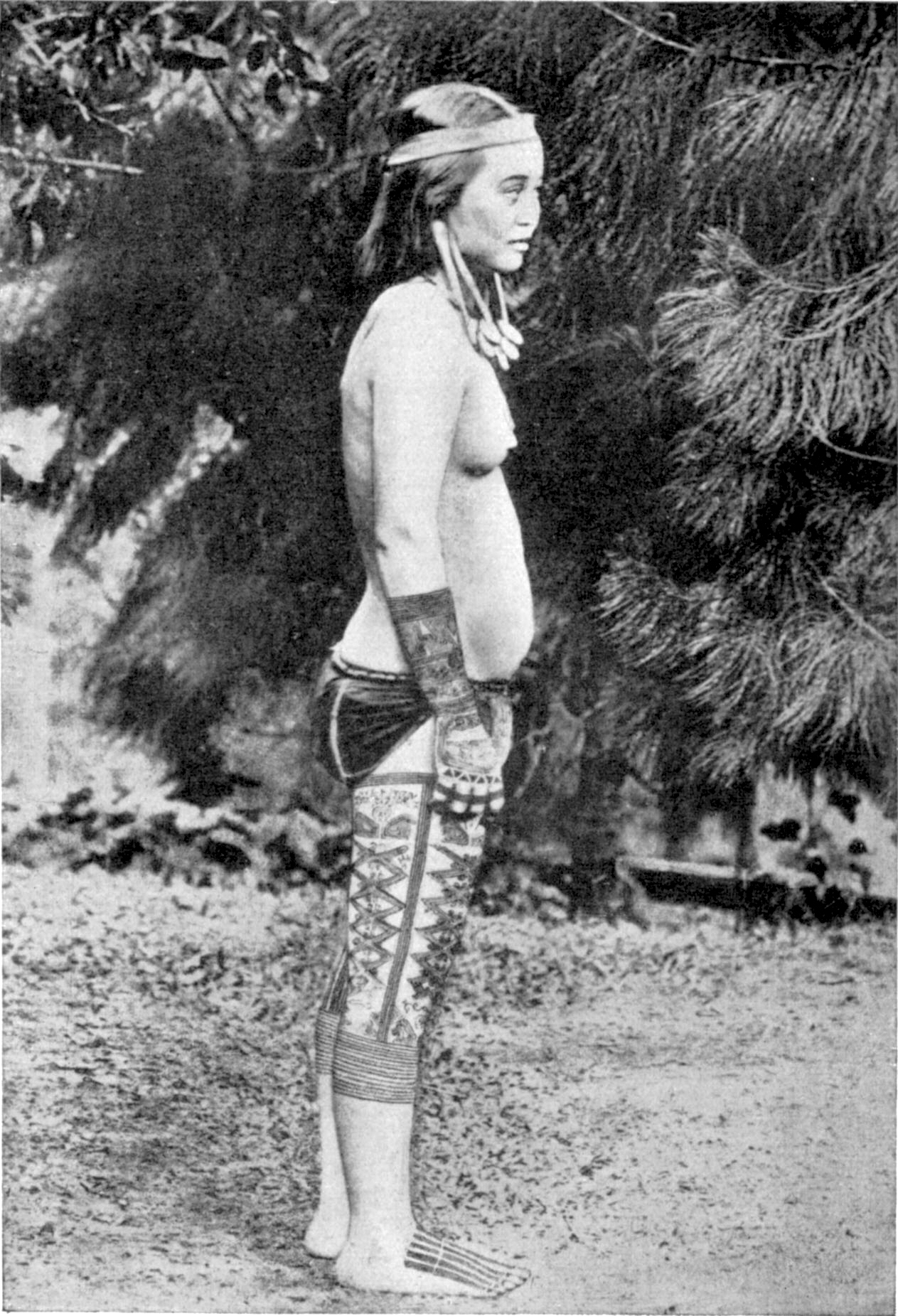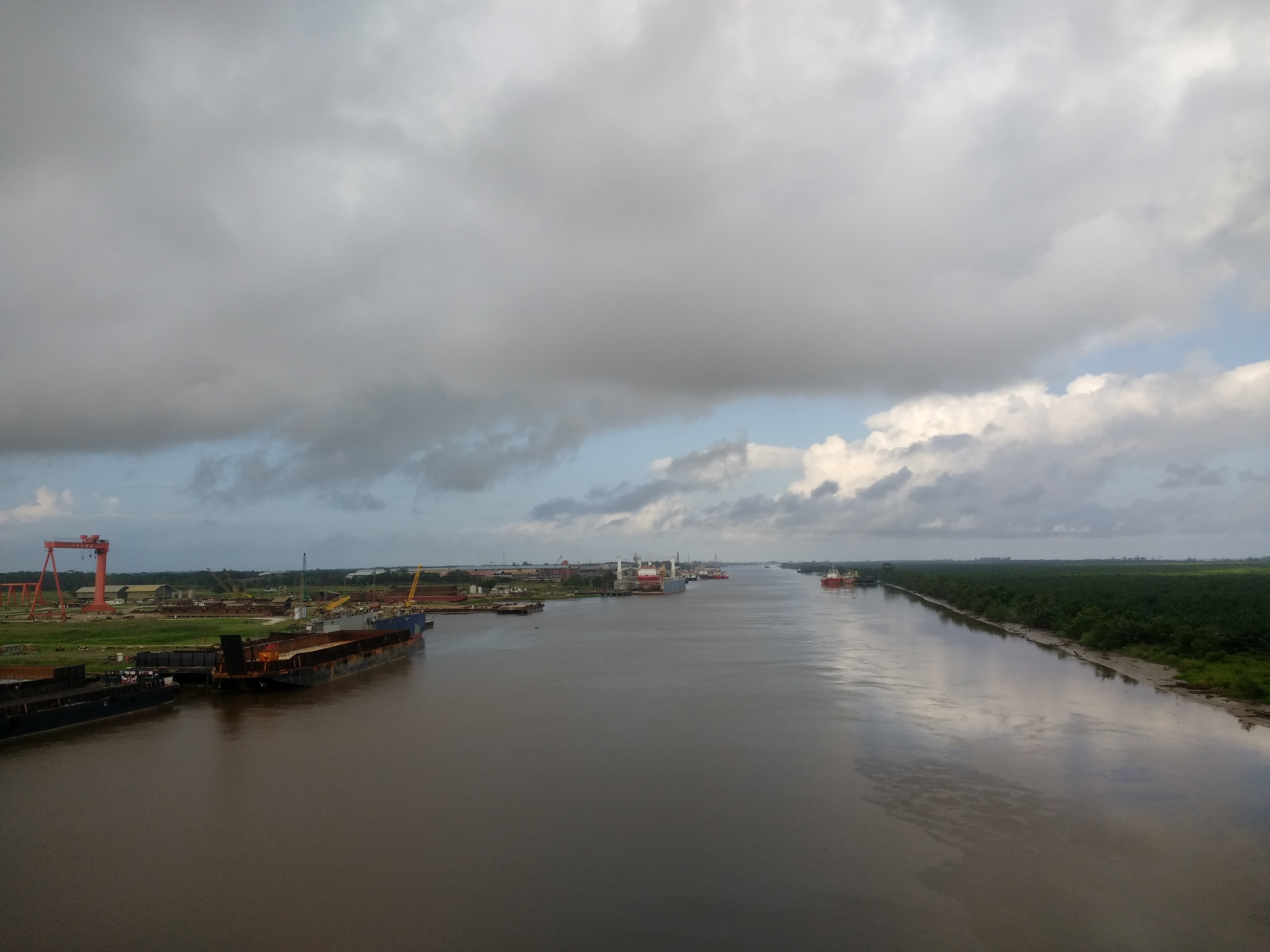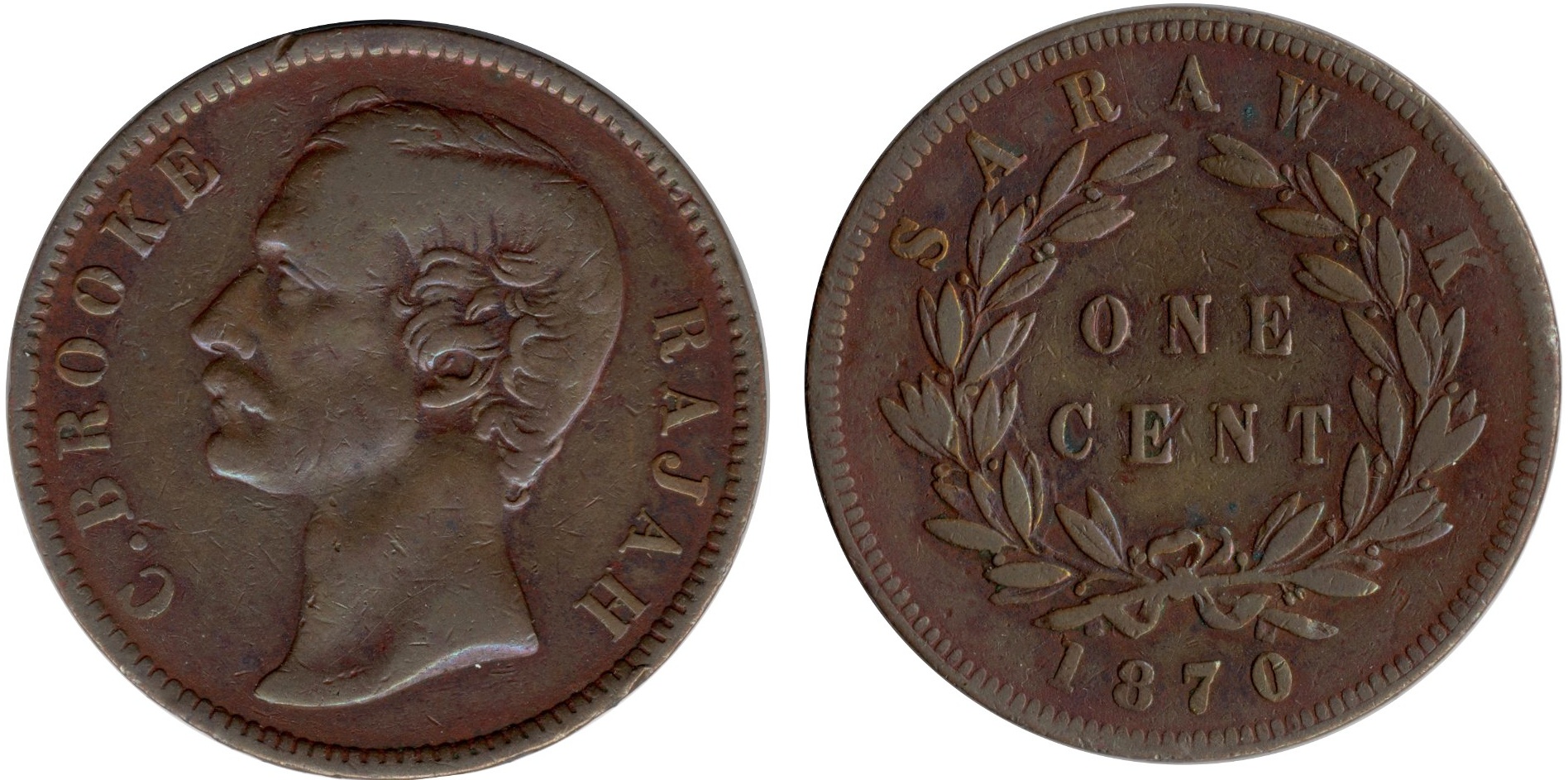|
Abdul Momin
Abdul Momin (; ; 1788 – 29 May 1885) was the 24th Sultan of Brunei from 1852 until his death in 1885. Early life He was the son of Pengiran Shahbandar Pengiran Anak Abdul Wahab and grandson of Sultan Omar Ali Saifuddin I. He was also the brother in law of Sultan Hashim Jalilul Alam Aqamaddin. Reign (1852-1885) Abdul Momin succeeded his father-in-law Omar Ali Saifuddin II as sultan upon the latter's death in 1852, having previously served as regent for him during his ill health. During Abdul Momin's reign, the teachings of Islam were encouraged and he also sent some Ulama to Makkah. Territorial losses During his reign, many territories were surrendered to James Brooke of Sarawak (White Rajahs); in 1855, seven districts stretching from Samarahan to Rajang were surrendered to James Brooke in the signing of a treaty. On 26 November 1856, the British signed a treaty with Sultan Abdul Momin to reconfirm the Treaty of Friendship and Commerce signed in 1847. In 1861, Brooke backe ... [...More Info...] [...Related Items...] OR: [Wikipedia] [Google] [Baidu] |
List Of Sultans Of Brunei
The sultan of Brunei is the monarchical head of state of Brunei and head of government in his capacity as prime minister of Brunei. Since independence from the British in 1984, only one sultan has reigned, though the royal institution dates back to the 14th century. The sultan of Brunei can be thought of as synonymous with the ruling House of Bolkiah, with generations being traced from the first sultan, temporarily interrupted by the 13th sultan, Abdul Hakkul Mubin, who in turn was deposed by a member of the House of Bolkiah. The sultan's full title is His Majesty The Sultan and Yang Di-Pertuan of Brunei Darussalam. Sultans Uncertainties The earliest historical record of the Sultans of Brunei is not clearly known due to the poor early documentation of Brunei history. In addition there has been an effort to ''Islamise'' the history, with the "official history" not matching up with verifiable foreign sources The ''Batu Tarsilah'' - the genealogical record of the kings of Brun ... [...More Info...] [...Related Items...] OR: [Wikipedia] [Google] [Baidu] |
Government Of The United Kingdom
ga, Rialtas a Shoilse gd, Riaghaltas a Mhòrachd , image = HM Government logo.svg , image_size = 220px , image2 = Royal Coat of Arms of the United Kingdom (HM Government).svg , image_size2 = 180px , caption = Royal coat of arms of the United Kingdom, Royal Arms , date_established = , state = United Kingdom , address = 10 Downing Street, London , leader_title = Prime Minister of the United Kingdom, Prime Minister (Rishi Sunak) , appointed = Monarchy of the United Kingdom, Monarch of the United Kingdom (Charles III) , budget = 882 billion , main_organ = Cabinet of the United Kingdom , ministries = 23 Departments of the Government of the United Kingdom#Ministerial departments, ministerial departments, 20 Departments of the Government of the United Kingdom#Non-ministerial departments, non-ministerial departments , responsible = Parliament of the United Kingdom , url = The Government of the United Kingdom (commonly referred to as British Governmen ... [...More Info...] [...Related Items...] OR: [Wikipedia] [Google] [Baidu] |
Raja
''Raja'' (; from , IAST ') is a royal title used for South Asian monarchs. The title is equivalent to king or princely ruler in South Asia and Southeast Asia. The title has a long history in South Asia and Southeast Asia, being attested from the Rigveda, where a ' is a ruler, see for example the ', the "Battle of Ten Kings". Raja-ruled Indian states While most of the Indian salute states (those granted a gun salute by the British Crown) were ruled by a Maharaja (or variation; some promoted from an earlier Raja- or equivalent style), even exclusively from 13 guns up, a number had Rajas: ; Hereditary salutes of 11-guns : * the Raja of Pindrawal * the Raja of Morni * the Raja of Rajouri * the Raja of Ali Rajpur * the Raja of Bilaspur * the Raja of Chamba * the Raja of Faridkot * the Raja of Jhabua * the Raja of Mandi * the Raja of Manipur * the Raja of Narsinghgarh * the Raja of Pudukkottai * the Raja of Rajgarh * the Raja of Sangli * the Raja of Sailana * the Raj ... [...More Info...] [...Related Items...] OR: [Wikipedia] [Google] [Baidu] |
Sabah
Sabah () is a States and federal territories of Malaysia, state of Malaysia located in northern Borneo, in the region of East Malaysia. Sabah borders the Malaysian state of Sarawak to the southwest and the North Kalimantan province of Indonesia to the south. The Federal Territory (Malaysia), Federal Territory of Labuan is an island just off Sabah's west coast. Kota Kinabalu is the state capital city, the economic centre of the state, and the seat of the Government of Sabah, Sabah state government. Other major towns in Sabah include Sandakan and Tawau. The 2020 census recorded a population of 3,418,785 in the state. It has an equatorial climate with tropical rainforests, abundant with animal and plant species. The state has long mountain ranges on the west side which forms part of the Crocker Range National Park. Kinabatangan River, the second longest river in Malaysia runs through Sabah. The highest point of Sabah, Mount Kinabalu is also the highest point of Malaysia. The ear ... [...More Info...] [...Related Items...] OR: [Wikipedia] [Google] [Baidu] |
Maharaja
Mahārāja (; also spelled Maharajah, Maharaj) is a Sanskrit title for a "great ruler", "great king" or " high king". A few ruled states informally called empires, including ruler raja Sri Gupta, founder of the ancient Indian Gupta Empire, and Chandragupta Maurya. 'Title inflation' soon led to most being rather mediocre or even petty in real power, which led to compound titles (among other efforts) being used in an attempt to distinguish some among their ranks. The female equivalent, Maharani (or Maharanee, Mahārājñī, Maharajin), denotes either the wife of a Maharaja (or Maharana etc.) or also, in states where it was customary, a woman ruling without a husband. The widow of a Maharaja is known as a Rajmata, "queen mother". Maharajakumar generally denotes a son of a Maharaja, but more specific titulatures are often used at each court, including Yuvaraja for the heir (the crown prince). The form "Maharaj" (without "-a") indicates a separation of noble and religious office ... [...More Info...] [...Related Items...] OR: [Wikipedia] [Google] [Baidu] |
Gustav Overbeck
Gustav Overbeck (from 1867 von Overbeck, in 1873 Baron von Overbeck, in 1877 Maharaja of Sabah and Rajah of Gaya and Sandakan; born 4 March 1830 in Lemgo; died 8 April 1894 in London) was a German businessman, adventurer and diplomat. Biography Overbeck was the son of pharmacist and medical councillor Georg Heinrich Overbeck from Lemgo. He came to Bremen for a commercial apprenticeship with his uncle in the family business there, but did not stay long, and emigrated to the United States in the spring of 1850 with his cousin August Meier. He went to San Francisco and opened a business, while undertaking adventurous trade journeys to Hawaii, the South Seas, Alaska, and the Bering Strait. He came into contact with the English trading house Dent & Co., which in 1854 gave him a job in British Hong Kong. There, he had four children with a Chinese woman named Lam Tsat-Tai. They were Lily Overbeck, Oi Moon Overbeck, Annie Overbeck and Victoria Overbeck. In 1856, he was appointed Pr ... [...More Info...] [...Related Items...] OR: [Wikipedia] [Google] [Baidu] |
Joseph William Torrey
Col. Joseph William Torrey, Rajah of Ambong and Marudu, (April 22, 1828 in Bath, Maine; – June 22, 1885 in Boston) was an American merchant, president of the American Trading Company of Borneo and co-founder of the American colony "Ellena" (in present-day Kimanis) together with Thomas Bradley Harris on the island of Borneo. He was known as "Yankee Rajah" and served as a U.S. vice-consul to Siam. Early life Torrey was born on April 22, 1828 in Bath, Maine, the son of Joseph Gendall Torrey and his second wife, Emeline (). His father, a printer, founded the Maine Gazette, Bath's first newspaper. In 1834, the family moved to Roxbury, Massachusetts, a town adjacent to and later annexed by Boston. Torrey graduated from the Boston High School under Rev. Dr. Leach. At first, he also learned the printing business and worked for several years in the company of his father, which brought him into contact with the satirical magazine, ''The Carpet-Bag'', created and edited by Benjamin Pen ... [...More Info...] [...Related Items...] OR: [Wikipedia] [Google] [Baidu] |
Kayan People (Borneo)
Being an indigenous tribe in Borneo, the Kayan people are similar to their neighbours, the Kenyah people, Kenyah tribe, with which they are grouped together with the Bahau people under the Apo Kayan people group. The Kayan people are categorised as a part of the Dayak people. They are distinct from, and not to be confused with, the Kayan people (Myanmar), Kayan people of Myanmar. The population of the Kayan ethnic group may be around 200,000. They are part of a larger grouping of people referred collectively as the Orang Ulu, or upriver people. Like some other Dayak people, they are known for being fierce warriors, former headhunting, headhunters, adept in Upland rice cultivation, and having extensive tattoos and Stretching (body piercing), stretched earlobes amongst both sexes. History They may have originated from along the Kayan river in the North Kalimantan province of Borneo. They live along the upper Kayan and the middle Kapuas River, Kapuas and Mahakam River, Mahakam r ... [...More Info...] [...Related Items...] OR: [Wikipedia] [Google] [Baidu] |
Baram River
The Baram River ( ms, Sungai Baram) is a river in Sarawak on the island of Borneo. The river originates in the Kelabit Highlands, a watershed demarcated by the Iran Mountains of East Kalimantan, which form a natural border with Sarawak. The river flows westwards through tropical rainforest to the South China Sea. The Baram River terminates in a delta, which is subdivided into two units: East Barma Delta of Middle-Late Miocene age and West Baram Delta of Late Miocene-Quaternary age. The western unit is composed of mudstones enriched in organic components (total organic carbon content is more than 1.0 wt.%) which constitute substantial oil and gas reserves. The Baram river basin has been part of Sarawak since it was ceded to the White Rajah of Sarawak by the then sultan of Brunei in 1882, an area of some , for a perpetual annual payment of 6000 dollars. [...More Info...] [...Related Items...] OR: [Wikipedia] [Google] [Baidu] |
Coin
A coin is a small, flat (usually depending on the country or value), round piece of metal or plastic used primarily as a medium of exchange or legal tender. They are standardized in weight, and produced in large quantities at a mint in order to facilitate trade. They are most often issued by a government. Coins often have images, numerals, or text on them. ''Obverse'' and its opposite, ''reverse'', refer to the two flat faces of coins and medals. In this usage, ''obverse'' means the front face of the object and ''reverse'' means the back face. The obverse of a coin is commonly called ''heads'', because it often depicts the head of a prominent person, and the reverse ''tails''. Coins are usually made of metal or an alloy, or sometimes of man-made materials. They are usually disc shaped. Coins, made of valuable metal, are stored in large quantities as bullion coins. Other coins are used as money in everyday transactions, circulating alongside banknotes. Usually the highest va ... [...More Info...] [...Related Items...] OR: [Wikipedia] [Google] [Baidu] |
Charles Brooke, Rajah Of Sarawak
Sir Charles Brooke, Rajah of Sarawak, GCMG (''Charles Anthoni Johnson Brooke''; 3 June 1829 – 17 May 1917), born ''Charles Anthoni Johnson'', ruled as the head of state of Raj of Sarawak from 3 August 1868 until his death. He succeeded his uncle, James Brooke, as the second White Rajah of this small country on the coast of Borneo. Biography Charles Anthoni Johnson, was born in Berrow Vicarage, Burnham, Somerset, in England, to the Rev. Francis Charles and Emma Frances Johnson, née Brooke. Emma was the younger sister of James Brooke, the first Rajah of Sarawak. In addition to Charles, Francis and Emma had other children: Captain John Brooke Johnson (1823–1868) (later Brooke Brooke), Mary Anna Johnson (b. 1824), Harriet Helena Johnson (b. 1826), Charlotte Frances Johnson (b. 1828), Captain (William) Frederic Johnson (b. 1830), Emma Lucy Johnson (b. 1832), Margaret Henrietta Johnson (1834–1845), Georgianna Brooke Johnson (1836–1854), James Stuart Johnson (1839–1840) ... [...More Info...] [...Related Items...] OR: [Wikipedia] [Google] [Baidu] |
Charles L
Charles is a masculine given name predominantly found in English language, English and French language, French speaking countries. It is from the French form ''Charles'' of the Proto-Germanic, Proto-Germanic name (in runic alphabet) or ''*karilaz'' (in Latin alphabet), whose meaning was "free man". The Old English descendant of this word was ''Churl, Ċearl'' or ''Ċeorl'', as the name of King Cearl of Mercia, that disappeared after the Norman conquest of England. The name was notably borne by Charlemagne (Charles the Great), and was at the time Latinisation of names, Latinized as ''Karolus'' (as in ''Vita Karoli Magni''), later also as ''Carolus (other), Carolus''. Some Germanic languages, for example Dutch language, Dutch and German language, German, have retained the word in two separate senses. In the particular case of Dutch, ''Karel'' refers to the given name, whereas the noun ''kerel'' means "a bloke, fellow, man". Etymology The name's etymology is a Common ... [...More Info...] [...Related Items...] OR: [Wikipedia] [Google] [Baidu] |
_Sulu_(right)_Overbeck.jpg)








